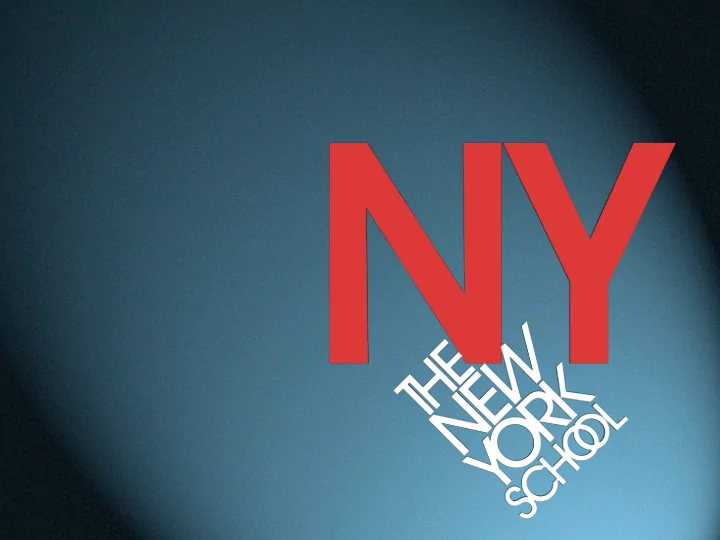

American Advertising During the 1940s Americans borrowed freely from European designers and ultimately became a dominant force in graphic design, lasting well into the 1970s.
&WOMEN
Paul Rand &WOMEN
Paul Rand Bill Bernbach
Bill Bernbach Alvin Lustig
Alvin Lustig Bradbury Thompson
Bradbury Thompson Saul Bass
Saul Bass Herb Lubalin
Herb Lubalin Thomas Geismar
Ivan Chermayeff Thomas Geismar
Ivan Chermayeff Cipe Pineles
Cipe Pineles Bea Feitler
CONCEPT: A Christmas package wrapped with barbed wire is a grim reminder of global war. Paul Rand Visually dynamic symbolism packs an emotional wallop in this 1940 magazine cover design.
CONCEPT: Simplified relationships between words and pictures. Paul Rand Children’s book design, 1957
CONCEPT: A logo, photograph and artwork are combined to create a playfully unified theme. Paul Rand 1946 retail advertising design
CONCEPT: A logo, photograph and artwork are combined to create a playfully unified theme. Paul Rand 1946 retail advertising design
Paul Rand Logo designs are global trademarks reduced to their essence.
CONCEPT: Make modern art (and the MOMA) as much a part of your everyday life as eating dinner. Paul Rand Poster design
CONCEPT: It’s the Winter Quarter, in LA. Paul Rand Catalog cover design
CONCEPT: Human spirit and brutal circumstances are symbolized in T. Williams’ plays. Alvin Lustig Demonstrated an early genius for design with book designs that played on powerful imagery full of symbolism.
CONCEPT: Letters move up and down like musical notes on a backdrop of harlequin triangles. Alvin Lustig 1951 album cover for Vivaldi’s Gloria.
CONCEPT: Images and geometrics create visual movement. Bradbury Thompson He designed publications for Westvaco to showcase their printing papers.
CONCEPT: Futuristic typography is used to depict the Civil War. Bradbury Thompson 4-color process plates appear in the letterforms.
CONCEPT: The arm symbolizes the main character’s struggle with heroin addiction. Saul Bass Bass brought modernistic design with him to Los Angeles with powerful symbolic images that worked to unify a promotional campaign across all media.
CONCEPT: Elegant style for women who work. Cipe Pineles Assistant art director for Vogue who went on to become art director at Glamour, then Charm and Seventeen magazines.
CONCEPT: Unconventional, this mirrored illusion adds graphic vitality. Cipe Pineles She eventually became the first woman admitted to membership in the New York Art Directors Club.
CONCEPT: Day-Glo typography and re-wording a holiday sentiment show joyous equality. Bea Feitler She worked for Harper’s Bazaar, Vogue, Ms. Magazine, Rolling Stone and Vanity Fair. Feitler took unprecedented risks such as this typography-only cover design.
CONCEPT: Take risks and make something amazing. Bea Feitler She hired acclaimed photographer Annie Lebovitz for this iconic Rolling Stone magazine cover.
CONCEPT: The atomic blast forms a visual metaphor for the human brain. Thomas H. Geismar One of three young designers who formed the New York design firm of Brownjohn, Chermayoff and Geismar in 1957.
CONCEPT: A new way to rebrand America (self-promotion). Ivan Chermayeff Son of distinguished architect-teacher Serge Chermayeff, Ivan was gifted at solving visual problems with inventive and symbolic imagery.
Ivan Chermayeff The firm Chermayeff & Geismar was a major player in corporate identity and branding.
Otto Storch The McCall’s magazine art director heralded major revolution in editorial design .
Otto Storch Storch combined typography tightly locked into the photographic images.
Henry Wolf As art director for Esquire and later Harper’s Bazaar, Wolf’s vision of the magazine cover was an exquisitely simple image conveying a visual idea.
Smaller, more specialized periodicals The demise of large-format magazines was the result of television’s popularity, escalating postal rates, paper shortages and higher printing costs.
Magazines such as Rolling Stone redefined their format, even reaching beyond music and entertainment topics, such as this ground-breaking report on AIDs in 1985.
CONCEPT: Think small – as in all the great things a small car can be: fuel efficient and affordable. Doyle Dane Bernbach This New York agency was known for its “creative teams” pairing writers with art directors to build strong conceptual ideas for its clients.
Here’s a few better known ad campaigns of the 20th Century.
CONCEPT: One word says it all. Herb Lubalin A typographic genius who abandoned traditional typographic rules and created words and images in combination as “typograms.”
Herb Lubalin Along with typographer Aaron Burns, Lubalin established the International Typeface Corporation (ITC) to develop and license the work of type designers.
Herb Lubalin He designed the post- modern type ITC Avant Garde.
George Lois As a young art director with Doyle Dane Bernbach, Lois had a reputation for provocative ads.
“CREATIVITY CAN SOLVE ALMOST ANY PROBLEM. THE CREATIVE ACT, George Lois THE DEFEAT OF HABIT As a young art director with BY ORIGINALITY, Doyle Dane OVERCOMES Bernbach, Lois had a EVERYTHING.” reputation for provocative —GEORGE LOIS ads.
“CREATIVITY CAN SOLVE ALMOST ANY PROBLEM. THE CREATIVE ACT, George Lois THE DEFEAT OF HABIT As a young art director with BY ORIGINALITY, Doyle Dane OVERCOMES Bernbach, Lois had a EVERYTHING.” reputation for provocative —GEORGE LOIS ads.
“CREATIVITY CAN SOLVE ALMOST ANY PROBLEM. THE CREATIVE ACT, George Lois THE DEFEAT OF HABIT As a young art director with BY ORIGINALITY, Doyle Dane OVERCOMES Bernbach, Lois had a EVERYTHING.” reputation for provocative —GEORGE LOIS ads.
George Lois He threatened to jump off the 3rd-floor ledge of Goodman’s Company office demanding that his poster got approval.
George Lois But he’s best known for his visually jarring magazine covers for Esquire magazine.
George Lois Muhammad Ali, already controversial for converting to Islam and changing his name from Cassius Clay, had resisted the draft and become a target of ridicule from the public, the government and his sport.
George Lois The portrayal borrows from the renaissance images of Saint Sebastian who was martyred for his Christian beliefs.
George Lois Lois’ ability to persuade people to participate in photographs resulted in powerful images.
George Lois Lois revived the magazine’s flagging sales with his striking covers, but he vowed he’d quit if the editors ever turned down an idea.
Recommend
More recommend